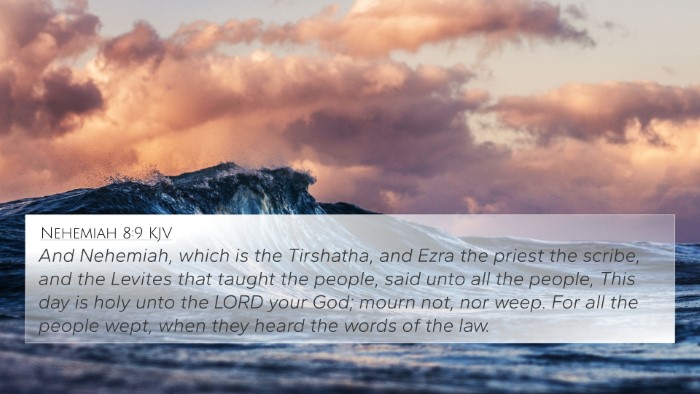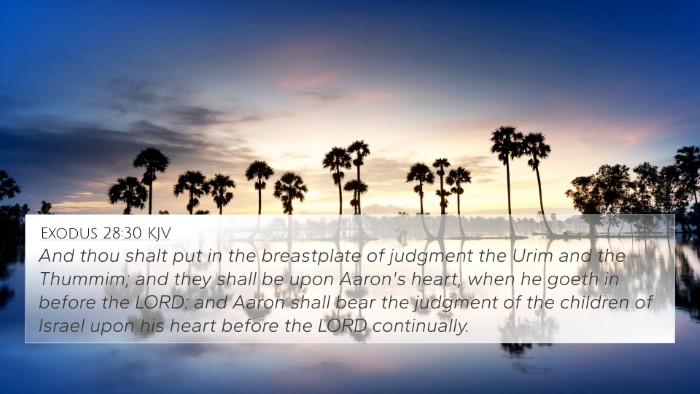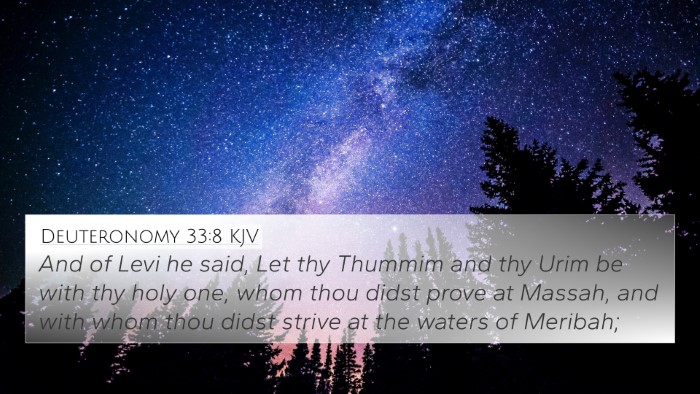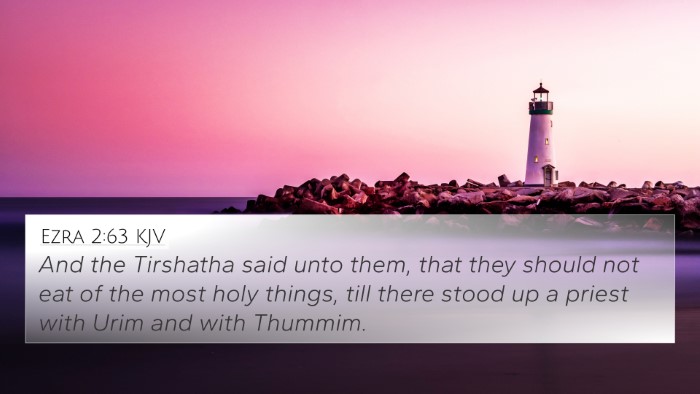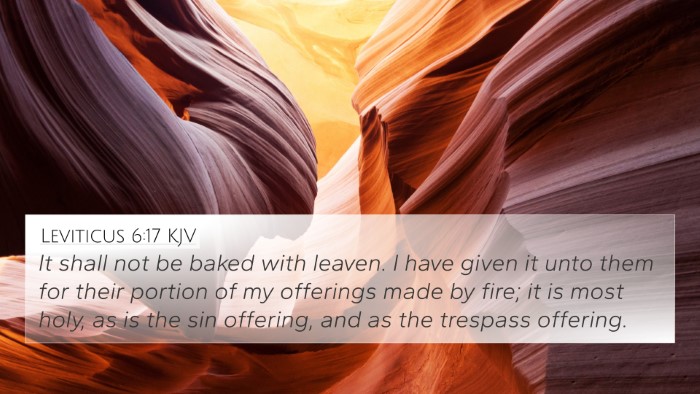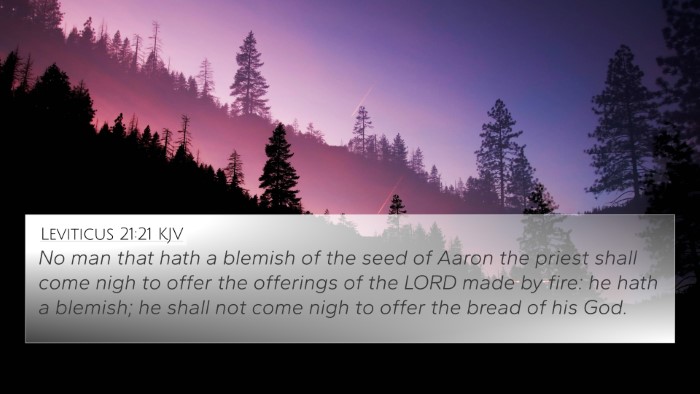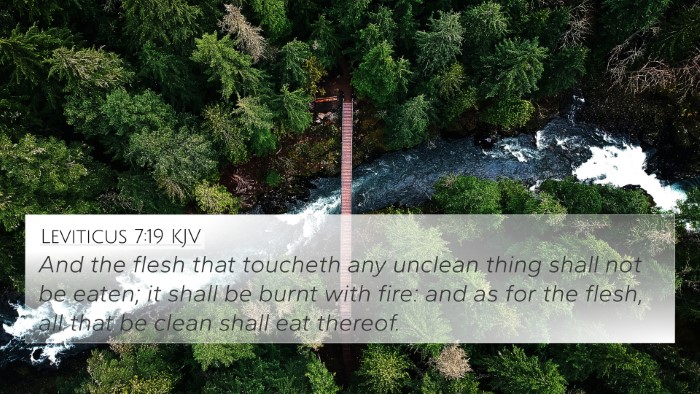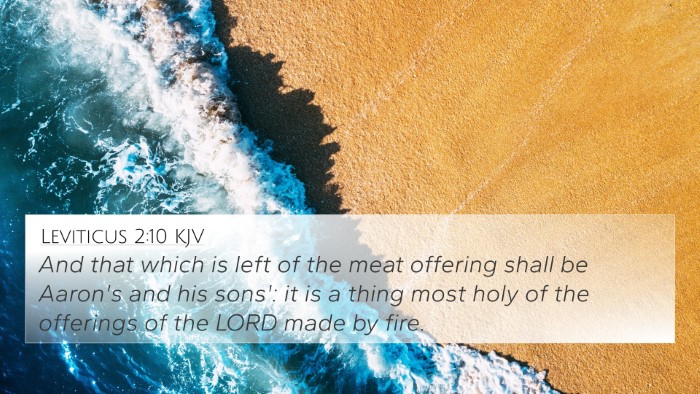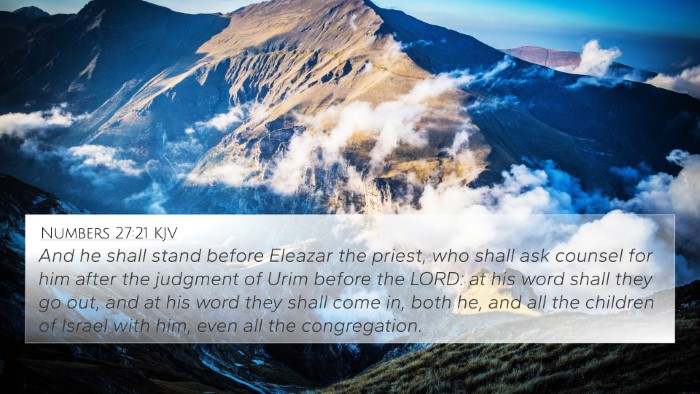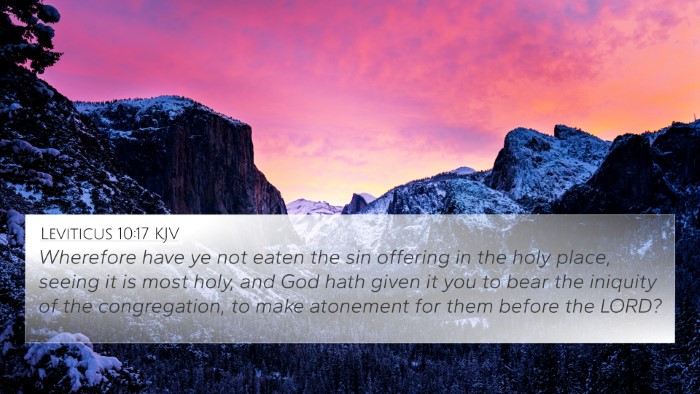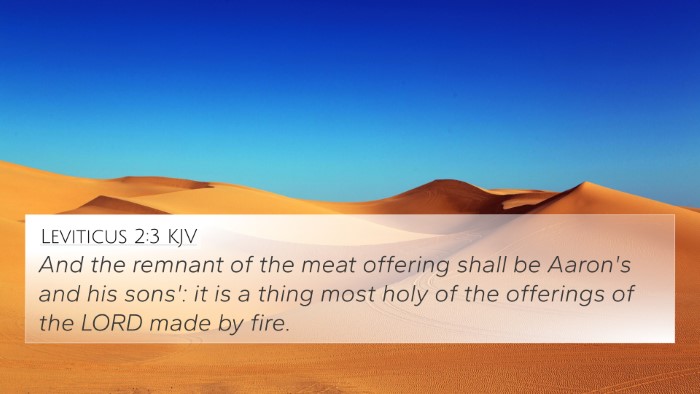Understanding Nehemiah 7:65: A Comprehensive Analysis
Nehemiah 7:65: "And the governor said unto them, that they should not eat of the most holy things, till there stood up a priest with Urim and Thummim."
Summary of the Verse
Nehemiah 7:65 highlights a crucial aspect of the post-exilic Jewish community where adherence to the laws concerning sacred practices is emphasized. The verse indicates that certain ceremonial practices, particularly those involving the most holy things, were to be suspended until a qualified priest, equipped with the Urim and Thummim, was available.
Commentary Insights
Insights from Matthew Henry
Matthew Henry's Commentary elaborates on the importance of the Urim and Thummim, indicating that these were a means for the high priest to make decisions and that their absence necessitated a pause in certain religious practices. The delay signifies a call for divine approval and the need for proper leadership in spiritual matters.
Insights from Albert Barnes
Albert Barnes' Commentary emphasizes the significance of having a legitimate priesthood to guide the community. He notes that the people were mandated to wait for divine direction before participating in holy meals, thus serving as a reminder of the hierarchy and order established through God's Law.
Insights from Adam Clarke
Adam Clarke's Commentary reflects on the historical context of this stipulation, linking it to the covenantal relationship between God and the Israelites, where obedience to God's commandments was paramount. He posits that the Urim and Thummim symbolize the importance of divine guidance in community affairs.
Thematic Bible Verse Connections
Nehemiah 7:65 touches on several themes that resonate throughout the Scriptures. Below are connections to other biblically significant verses:
- Exodus 28:30: Discussing the Urim and Thummim as tools for divination in high priestly duties.
- Leviticus 10:10: The requirement of distinguishing between holy and unholy, correlating with the holiness of what was to be eaten.
- 1 Samuel 28:6: The mention of divine communication in times of decision-making.
- Ezra 2:63: The emphasis on the lack of a priest available to determine sacred matters, echoing Nehemiah 7:65.
- Hebrews 5:1: A discussion on the role of priests and their responsibilities, reaffirming the importance of the priestly office.
- Malachi 2:7: The priest's duty to convey knowledge and discernment.
- Isaiah 30:20-21: A reminder that divine guidance leads to righteousness.
Comparative Bible Verse Analysis
This passage can be analyzed against the broader narrative of post-exilic restoration and the significance of obedience to God’s Law.
Comparing with Other Scriptures
When examining Nehemiah 7:65, we find it emboldened by discussions of order and worship found in:
- Deuteronomy 18:1-8: The Levites' role concerning sacred offerings.
- Zechariah 3:1-10: Addressing the purification of the priestly order.
Tools for Cross-Referencing
Utilizing tools for cross-referencing can deepen the understanding of Nehemiah 7:65. Various resources include:
- Bible Concordances
- Bible Cross-Reference Guides
- Digital Bible Study Tools
- Commentaries that focus on cross-referencing Biblical texts
Conclusion
In studying Nehemiah 7:65, one gains insight into the importance of divine order and spiritual authority in the Jewish faith. The significance of the Urim and Thummim, along with the emphasis on the role of the priesthood, highlights God’s desire for His people to engage with Him in a manner that is biblically structured and guided. This verse serves as a poignant reminder of the necessity of obedience and the recognition of divine authority in worship practices.
Further Exploration
Engage in deeper exploration of these themes and connections by developing a thematic Bible study or a cross-reference Bible study. Understanding the links between this verse and others can enhance your scriptural knowledge and interpretation skills.



